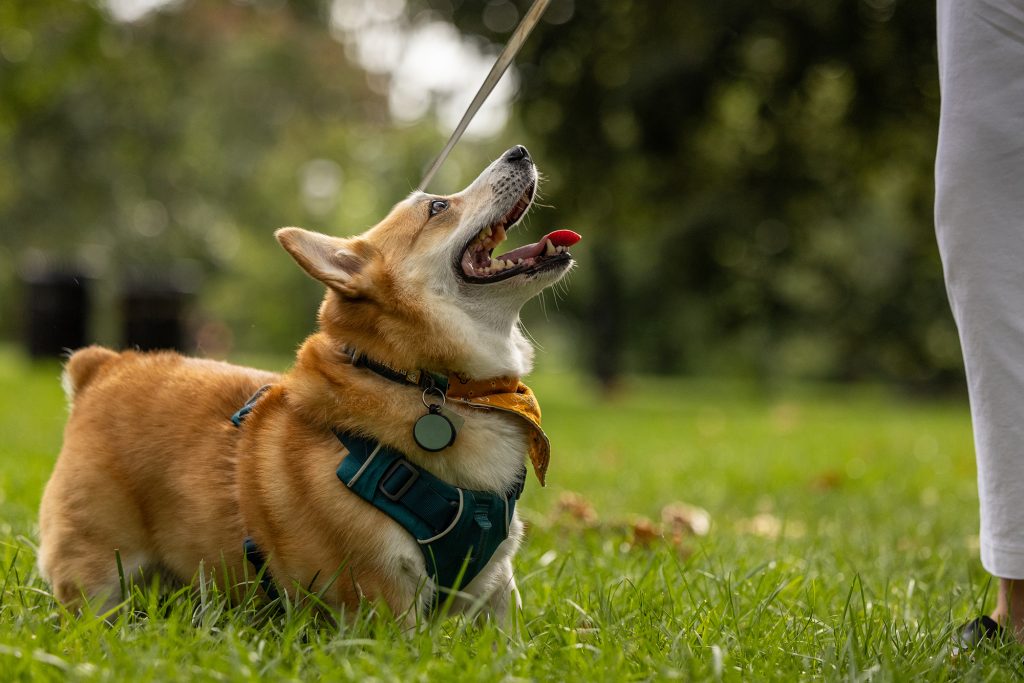Published on
Updated on

Story contact: Deidra Ashley, CVMMarCom@missouri.edu
Photo by Abbie Lankitus
At the University of Missouri College of Veterinary Medicine, the human-animal bond isn’t just a heartwarming idea — it’s a field of serious study, far-reaching impact and lasting change. For 20 years, the Research Center for Human-Animal Interaction (ReCHAI) has been at the forefront of exploring how our relationships with animals can improve health, strengthen communities and transform lives.
Founded in 2005, ReCHAI emerged from a bold idea: that science could validate what many instinctively know — animals make us better. Today, the center continues to set the standard for human-animal interaction research, training and outreach. From helping veterans and children to shaping national policies and pioneering pet-inclusive health care, its work reflects the compassion, curiosity and innovation that define Mizzou’s veterinary community.
As ReCHAI celebrates its 20th anniversary, here are 10 ways the center has changed lives and helped shape the future of human-animal interaction.
1. Proving the science behind the human-animal bond.
Interdisciplinary studies led by the center have helped turn anecdote into evidence — showing how animal interactions lower stress, reduce blood pressure and improve emotional health across all ages. This research has laid a scientific foundation for animal-assisted interventions, lending credibility to a once-overlooked field.
2. Supporting veterans.
Through groundbreaking research on service dogs and equine-assisted programs, the center has shown how animal relationships can contribute to emotional recovery and resilience for veterans with PTSD and trauma. These findings have influenced care models and provided renewed hope for those who’ve served.
3. Improving outcomes for children with autism and their families.
Animals have been shown to enhance social skills, reduce anxiety and relieve caregiver stress in families navigating autism. Through projects like shelter-cat adoption studies, the center has introduced new models of support and drawn national attention to the potential of the human-animal bond in neurodiverse communities.
4. Bringing joy and comfort to pediatric patients.
In partnership with MU Children’s Hospital and the Thompson Center for Autism and Neurodevelopmental Disorders, ReCHAI has helped establish facility dog programs that offer therapeutic interaction to some of Missouri’s most vulnerable patients — providing motivation, comfort and healing through presence alone.
5. Pioneering pet-friendly senior living models.
The center’s collaboration with TigerPlace, a first-of-its-kind pet-inclusive senior community, has become a national model for aging in place. Their work has demonstrated that living with pets supports better mobility, mental health and overall quality of life for older adults.
6. Training the next generation of experts.
Mizzou students across health care, social work, psychology and veterinary medicine gain hands-on experience through ReCHAI’s interdisciplinary programs. This education equips future professionals to thoughtfully apply the human-animal bond in both clinical and research careers.
7. Advocating for shelter pets and responsible pet ownership.
With studies on shelter pet behavior and public education efforts, the center promotes healthier outcomes for both people and animals. Initiatives like dog-walking programs highlight how responsible pet care can also improve human mental and physical well-being.
8. Elevating public understanding of human-animal interaction Benefits.
Through academic publications, community engagement and media outreach, ReCHAI ensures that research findings reach the people who need them most. Their work translates science into action, making the benefits of human-animal interaction more widely understood and more broadly applied.
9. Partnering nationally for greater impact.
Collaborations with the National Institutes of Health, the Human Animal Bond Research Institute and other major organizations have brought Mizzou’s expertise to the national stage — shaping policies, advancing standards and reinforcing the value of evidence-based approaches to human-animal interaction.
10. Honoring a legacy, building the future.
What began as a vision of the late Rebecca Johnson, PhD, RN, FAAN, is now guided by Carolyn Henry, DVM, MS, DACVIM, who continues to push the field forward. With new projects underway — including studies on service dogs for children with autism, working dog welfare, and the impact of pet ownership on access to health care — the next chapter of ReCHAI promises to be just as impactful as its first.